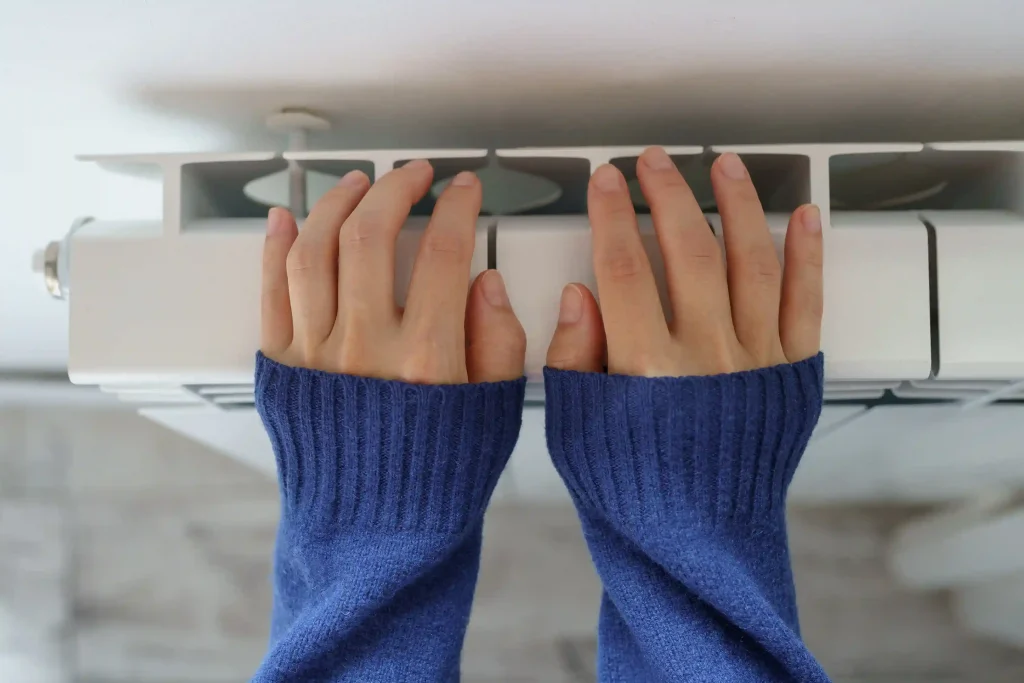Good indoor air quality is very important for keeping your house healthy and pleasant. Dust, allergens, pet dander, and pollution can accumulate, causing respiratory difficulties and allergies. If you are asking how many air purifiers I need, you are not alone. Let’s take it step by step so you can breathe easily!
How Cold is Too Cold for a Furnace?
A furnace is intended to heat your home effectively, but it does have limitations. If your furnace is having trouble keeping up with frigid temperatures, it might be a capacity issue rather than a malfunction. A well-running furnace should be able to keep inside temperatures comfortable even when it is really cold outside. However, if your furnace is not pumping warm air at all, something is clearly amiss.
Why is My Furnace Blowing Cold Air?
There are several reasons why your furnace not blowing hot air could be a problem. Some are simple to solve, while others require expert assistance. Listed below are the most typical causes:
Thermostat Settings and Issues
Your thermostat regulates how your furnace works, so the wrong settings might cause cold air problems.
- Ensure that the thermostat is set to “Heat” rather than “Cool.”
- Check that the fan is set to “Auto” instead of “On.” If it is turned on, the blower will operate continually without heating.
- Replace outdated thermostat batteries to prevent signal problems.
- A defective thermostat may not communicate effectively with the furnace, resulting in irregular heating.
Power Supply Problems
Your furnace needs electricity to work. If the power source fails, the furnace may blast chilly air or shut down.
- Check the circuit breaker to ensure it is not tripped.
- Check if a power switch near the furnace is in the “On” position.
- If your furnace has a reset button, use it to restart the system.
Gas Supply Problems (For Gas Furnaces)
A gas furnace may stop heating if its gas supply is disturbed.
- Make sure the gas valve is switched on.
- If you smell gas, leave the house right away and call a professional.
- If your gas supplier has turned off the supply due to weather or maintenance, call them to confirm.
Airflow Obstructions
A furnace requires adequate airflow to heat efficiently. Blockages can cause it to overheat and initiate a safety shutdown.
- Replace blocked air filters to increase airflow.
- Make sure the vents and registers are open and unobstructed.
- Inspect the ductwork for any leaks or obstructions that might prevent warm air from reaching your rooms.
Pilot Light or Ignition Problems (For Gas Furnaces)
If your older gas furnace includes a pilot light, it must remain lighted in order for the furnace to generate heat.
- Check to see whether the pilot light is out and then relight it per the manufacturer’s directions.
- If your furnace has an electronic ignition system, make sure it works properly.
- Dirt and dirt might interfere with ignition; therefore, cleaning the pilot assembly may be beneficial.
Flame Sensor Issues (For Gas Furnaces)
A dirty or malfunctioning flame sensor can shut off the burner, leaving you with a furnace blowing cold air.
- The flame sensor detects if the burner is on and, if it is unclean, turns off the gas for safety.
- Cleaning the flame sensor with a gentle cloth or fine sandpaper will address the problem.
- If the sensor is defective, it may need to be replaced by a professional.
Issues with the Blower Motor
The blower motor distributes warm air around your home. If it fails, the furnace may not operate correctly.
- Listen for strange noises, such as grinding or screeching that may indicate a problem with the motor.
- If the blower turns on but no warm air comes out, there may be an issue with the limit switch.
- In rare circumstances, a malfunctioning motor may require expert repair or replacement.

Should I Turn My Furnace Off If It's Blowing Cold Air?
If your furnace is not blowing warm air, it’s best to troubleshoot before shutting it off completely.
- If the chilly air is caused by a minor problem, such as a broken thermostat or a clogged filter, repairing it promptly will restore heat.
- If the furnace often cycles on and off or continually blasts cold air, shutting it off might help avoid additional damage.
- The safest choice for gas furnaces with pilot light or flame sensor concerns is to turn them off and call a service.
Preventive Measures to Avoid Cold Air Issues
The vast majority of furnace issues may be avoided with regular maintenance. Here’s how to keep your system in great condition:
Regular Furnace Maintenance
- Schedule a yearly furnace check and tune-up.
- Clean and replace air filters every 1-3 months.
- Maintain a dust-free environment around the furnace.
Thermostat Calibration and Upgrades
- Make sure your thermostat is adjusted appropriately.
- Upgrade to a smart thermostat to get greater control and efficiency.
- If your old thermostats aren’t regulating temps effectively, replace them.
Ductwork Inspection and Sealing
- Inspect ducts for leaks that might result in heat loss.
- Seal any holes or fractures to ensure proper airflow.
- To avoid dust and debris buildup, clean your ducts on a regular basis.
When to Call a Professional HVAC Technician
If you’ve tried troubleshooting but are still wondering why is my furnace blowing cold air, it’s time to call the pros. A professional can
- Diagnose and resolve complicated furnace difficulties.
- Clean and replace any defective components.
- Ensure that your system operates securely and effectively.
At TradesWorksNW, we provide experienced furnace heating services to keep your house warm throughout the winter. Whether your furnace is not blowing hot air due to a little problem or a big malfunction, we have you covered.
